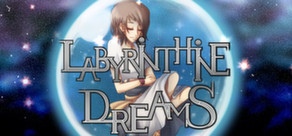 Any time I think about Millennium Actress, it always comes back to that scene. I'm not sure which of Satoshi Kon's films is the best, but the most amazing single scene he ever created is in his second feature.
Any time I think about Millennium Actress, it always comes back to that scene. I'm not sure which of Satoshi Kon's films is the best, but the most amazing single scene he ever created is in his second feature. But we'll get to that soon enough. A few years after Perfect Blue, Kon returned with a film that touched on many of the same themes - fame, the blurred line between life and art, and fandom. Of course, it was far less disturbing this time around. Instead of the psychotic MeMania, we have Genya Tachibana, a much more benevolent take on the obsessive fan. His passion winds up being justified, since we learned he actually met the title character in his younger years as a production assistant. The "actress" of the film's name is the elderly Chiyoko Fujiawara, a character supposedly based on Setsuko Hara. The bulk of the film is Chiyoko sharing her life and filmography. However, this is a Satoshi Kon film, and it doesn't take long for the memories and the movies to start blending together to kaleidoscopic effect. The director throws the audience a bone with the character of Kyoji, a young cameraman who functions as a surrogate for the viewer and doesn't hide his confusion. "When did this turn into a movie?!" he exclaims at one point.
 The numerous roles played by Chiyoko during the film include an astronaut, a geisha, a teacher, a war prisoner, a warrior, and a scientist working to defeat Godzilla. Some specific scenes pay tribute to live-action legends like Kurosawa or Ozu, and the various settings of Chiyoko's films encompass many major periods of Japanese history. The movie is almost a salute to Japan's history and iconography, which can be surprising given the spanking Kon gave to elements of Japanese society in Perfect Blue.
The numerous roles played by Chiyoko during the film include an astronaut, a geisha, a teacher, a war prisoner, a warrior, and a scientist working to defeat Godzilla. Some specific scenes pay tribute to live-action legends like Kurosawa or Ozu, and the various settings of Chiyoko's films encompass many major periods of Japanese history. The movie is almost a salute to Japan's history and iconography, which can be surprising given the spanking Kon gave to elements of Japanese society in Perfect Blue. For the greater part of her life, Chiyoko obsessively pursued a mysterious painter she met by chance in her younger days. She continues on for years despite how baffled everyone else in her life is by this, and it culminates in that scene. As a middle-aged Chiyoko makes one last mad dash for the mountains of Hokkaido, we see all of her incarnations rushing through rain, snow and other obstacles, all of them seamlessly integrated. She collapses from exhaustion, but hears the painter's voice in her head and wills herself back to her feet for one last trudge. This sequence is a moment of transcendent beauty and overwhelming emotion. I honestly had never seen anything like it, and when it was over, I didn't know whether to weep or stand out of my chair and applaud.
For the greater part of her life, Chiyoko obsessively pursued a mysterious painter she met by chance in her younger days. She continues on for years despite how baffled everyone else in her life is by this, and it culminates in that scene. As a middle-aged Chiyoko makes one last mad dash for the mountains of Hokkaido, we see all of her incarnations rushing through rain, snow and other obstacles, all of them seamlessly integrated. She collapses from exhaustion, but hears the painter's voice in her head and wills herself back to her feet for one last trudge. This sequence is a moment of transcendent beauty and overwhelming emotion. I honestly had never seen anything like it, and when it was over, I didn't know whether to weep or stand out of my chair and applaud.Part of the reason this scene (and the whole film) is so powerful is the bombastic, beautiful score by Susumu Hirasawa. An innovative composer whose style is instantly recognizable, Hirasawa would become a frequent collaborator of Kon. The score for Millennium Actress may be his finest work, it perfectly compliments the images and it's hard to imagine the movie working so well without it.
 The natural instinct as a viewer, especially a viewer who would like to speak conpetently about the movies he watches, is to try and figure out which scenes are from Chiyoko's "real" life and which are from her movie life. Kon's style makes this virtually impossible, and he likes it that way. Ultimately, it doesn't matter. Chiyoko's recollections blend them all into one story of yearning and perseverance.
The natural instinct as a viewer, especially a viewer who would like to speak conpetently about the movies he watches, is to try and figure out which scenes are from Chiyoko's "real" life and which are from her movie life. Kon's style makes this virtually impossible, and he likes it that way. Ultimately, it doesn't matter. Chiyoko's recollections blend them all into one story of yearning and perseverance.This is a film that rewards multiple viewings. The first time around, I was focused on the lush visuals and Kon's brilliant scene transitions and editing. The second time, I really felt the emotion. It honestly gets better each time I see it. Kon's films are often compared to live action, and I guess this one could have been if the producers didn't mind spending a huge amount of money creating all the "sets" of Chiyoko's career. As it stands, Millennium Actress is another Kon masterpiece that raises the bar for animation not just in visual dexterity, but also in emotional depth. Next up - the funny, poignant Tokyo Godfathers.




No comments:
Post a Comment